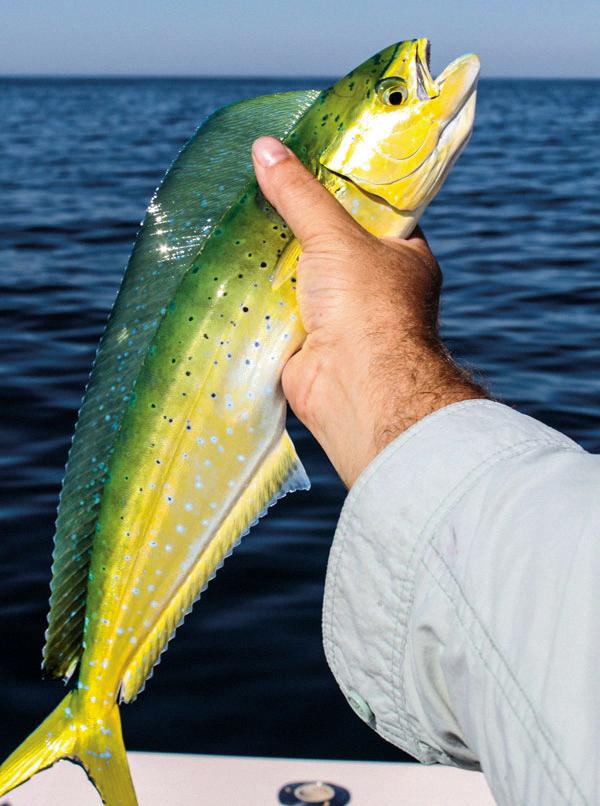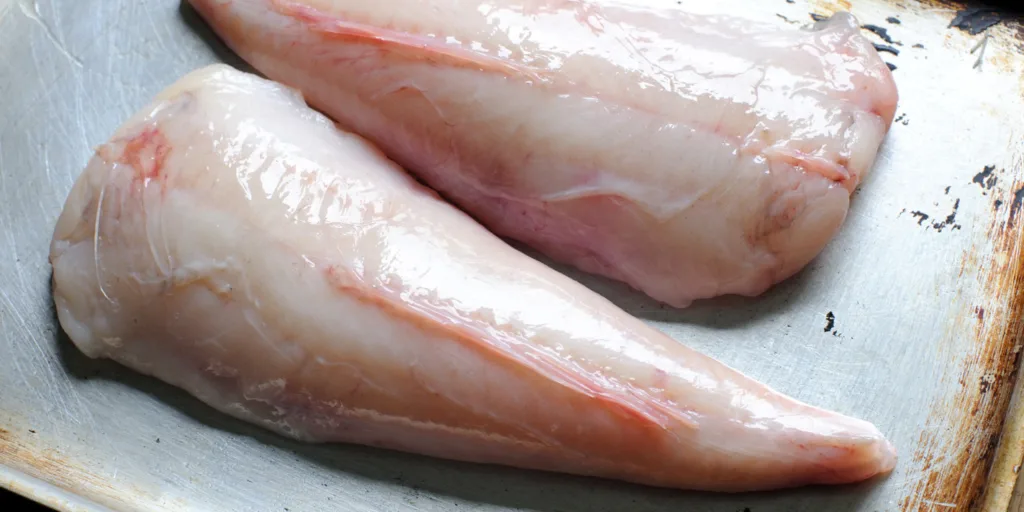Mahi mahi, also known as dolphin fish, is a popular fish in the culinary world. With its firm and mild-flavored flesh, it has become a favorite among seafood lovers. But when it comes to kosher dietary laws, the question arises: is mahi mahi kosher?
To answer this question, we need to understand what makes a fish kosher. According to Jewish dietary laws, a kosher fish must have fins and easily removable scales. This means that any fish that lacks either of these two characteristics is considered non-kosher.
Fortunately, mahi mahi meets both of these requirements. Mahi mahi has fins and cycloid scales that cover its entire body. Cycloid scales have smooth outer edges and overlap from head to tail, reducing drag and allowing the fish to swim faster. These scales are easily removable, making mahi mahi a kosher fish.
In contrast, non-kosher fish include swordfish, shark, eel, octopus, and skate, as well as all shellfish, clams, crabs, lobster, oyster, and shrimp. These fish either lack fins or have scales that are difficult to remove.
It is worth noting that the kosher status of a fish is not related to its mercury levels. While popular sea fishes like tuna and mackerel have high amounts of mercury, mahi mahi has moderate levels. This makes it a safe and healthy fish to consume.
In addition to mahi mahi, other kosher fish include cod, flounder, haddock, halibut, herring, mackerel, pickerel, pike, salmon, trout, and whitefish. These fish also have fins and scales that are easily removable.
On the other hand, the scales of a sturgeon are extremely hard to remove, making it non-kosher. This also applies to its precious roe, caviar. All shellfish, eels, shark, monkfish, huss, and catfish fail the kosher test.
Mahi mahi is a kosher fish that meets the dietary requirements of Jewish law. Its fins and easily removable scales make it a safe and healthy option for those following kosher dietary restrictions. When it comes to seafood, it’s important to know what is and isn’t kosher, and mahi mahi is definitely a good choice for those who observe these dietary laws.
Does Mahi Mahi Have Scales And Fins?
Mahi mahi has scales and fins. Scales are present all over the body of the fish and they are called cycloid scales. These scales have smooth outer edges and overlap from head to tail. The fins of a mahi mahi are the dorsal fin, the anal fin, the pectoral fins, and the caudal fin. The dorsal fin is located on the back of the fish, the anal fin is located on the underside of the fish, the pectoral fins are located on either side of the fish near the head, and the caudal fin is the tail fin. The fins of the mahi mahi help the fish to maneuver and swim though the water.

Which Fish Are Not Kosher?
According to Jewish dietary laws, or kashrut, there are certain types of fish that are considered non-kosher. These include swordfish, shark, eel, octopus, and skate, as well as all shellfish such as clams, crabs, lobster, oyster, and shrimp. It is important to note that kosher fish must have fins and scales, therefore any fish lacking these characteristics are also considered non-kosher. Some examples of kosher fish include cod, flounder, haddock, halibut, herring, mackerel, pickerel, pike, salmon, trout, and whitefish. It is important to follow these dietary laws to maintain the kosher status of the food being consumed.
Is Mahi Mahi A Clean Fish To Eat?
Mahi mahi is considered a safe and healthy fish to eat due to its moderate mercury levels. Unlike many other popular sea fishes, such as tuna and mackerel, mahi mahi has lower levels of mercury, making it a cleaner option for consumption. Mercury is a toxic substance that can accumulate in fish tissue over time, and high levels of mercury in the body can lead to health problems. Therefore, it is recommended to choose fish with lower mercury levels, such as mahi mahi, for a healthier and safer fish consumption. Additionally, mahi mahi is a good source of protein and other nutrients, making it a nutritious and delicious addition to your diet.
Why Is Monkfish Not Kosher?
Monkfish is not considered kosher as it fails to meet the requirements of having fins and easily detachable scales. The scales on monkfish are firmly attached and cannot be removed without tearing the skin, which is not in line with kosher laws. Additionally, monkfish is classified as a type of bottom-dwelling fish, which further disqualifies it from being considered kosher. As per kosher dietary laws, only fish that have both fins and scales and are caught in the appropriate manner can be consumed. Therefore, monkfish, alng with other seafood like shellfish, eels, shark, huss, and catfish, is not a kosher food.

Conclusion
Mahi Mahi is considered a kosher fish as it has fins and scales that can be easily detached. Its cycloid scales, whch cover its entire body, have smooth outer edges and are arranged in a way that reduces drag, making it a fast-swimming fish. Unlike some popular sea fishes, such as tuna and mackerel, which have high levels of mercury, Mahi Mahi has moderate mercury levels, making it a safe and healthy fish to consume. It is important to note that non-kosher fish, like sharks, eels, and shellfish, fail the kosher test. Therefore, if you are following a kosher diet, Mahi Mahi is a great option for a delicious and nutritious meal.
